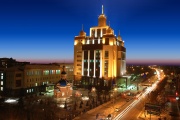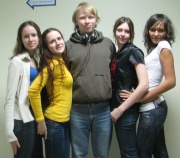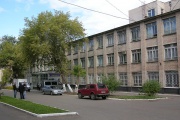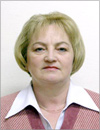OSU: Just For Fun
Rasifiel (обсуждение | вклад) |
Rasifiel (обсуждение | вклад) (→University) |
||
| Строка 15: | Строка 15: | ||
International relations and exchange programs between the educational establishments make for the strengthening of the understanding between people, help for the establishment of friendly and professional contacts. Thanks to the international relations the young people form their points of view, get over stereotypes and prejudices. As for the students and faculty, they become more tolerant, open and creative. | International relations and exchange programs between the educational establishments make for the strengthening of the understanding between people, help for the establishment of friendly and professional contacts. Thanks to the international relations the young people form their points of view, get over stereotypes and prejudices. As for the students and faculty, they become more tolerant, open and creative. | ||
| − | + | There is a list of international departments of Orenburg State University: | |
*International Office | *International Office | ||
*International Programs and Projects Department | *International Programs and Projects Department | ||
Версия 13:46, 27 марта 2009
Содержание[убрать] |
University

OSU is the largest institution of higher education in the Orenburg Region. Its 19 academic and professional schools, 3 research institutes, 6 regional campuses, 5 colleges offer 113 undergraduate majors and 57 graduate degree programs at Candidate of Science and Doctor of Science levels. Courses are offered in both traditional and accelerated semesters, during the day and at night.
The university serves for more than 43,000 students. Over 160 Doctors of Science and 800 Candidates of Science make up the OSU faculty body.
Orenburg campus counts more than 90 buildings including a new fundamental electronic library.
A highly qualified teaching staff and scientists, vast stock of modern educational services, computer rooms and laboratories, huge research potential, active innovation policy, cherished traditions are some of the most appealing features of studying at OSU. The OSU international activity has been rapidly developing for the last few years. It is directed to the attraction of foreign intellectual and material potential, enrichment of the local educational system with the world cultural value and the experience of the leading foreign universities, promotion of the university into the system of international educational space.
International relations and exchange programs between the educational establishments make for the strengthening of the understanding between people, help for the establishment of friendly and professional contacts. Thanks to the international relations the young people form their points of view, get over stereotypes and prejudices. As for the students and faculty, they become more tolerant, open and creative.
There is a list of international departments of Orenburg State University:
- International Office
- International Programs and Projects Department
- The German Language Center
- Japan Information Center
Curently rector of Orenburg State University is Vladimir Kovalevskiy, honored higher education worker of Russian Federation, doctor of economics, professor.
Faculty
The Faculty of Mathematics of the OSU was set up in 2005. It offers five-years training on the following specialties: “Mathematical maintenance and administering information systems” (qualification of programmer-mathematician) and “Applied mathematics and informatics” (qualification of mathematician, system programmer).
The main purpose of the faculty is to make students acquire fundamental scientific knowledge as well as practical skills, to do research and develop system thinking. To achieve this, academic curricula implies studying fundamental mathematics and advanced informational technologies during the first two years. Besides, there are humanitarian courses like history, philosophy, psychology, foreign language (English) to be studied. They help students to form their world outlook and improve their general knowledge and culture.
Senior students are taught a wide range of specialized courses in chosen fields. They master several programming languages, study system analysis, informatics, economics, etc. Practical work in various computer systems takes considerable part of academic time through the whole course of instruction. Students can learn, apply and examine a variety of programming languages. They also consider issues and techniques concerned with controlling and managing the software development process. Additionally they can study subjects such as computer graphics, network design or the Internet. There are up-to-date laboratories, computer classrooms with access to Internet, which provide efficient computer training.
Teaching and learning methods vary from lectures and tutorials to individual and group activities, applied case studies and practical work. Assessment is both by examination and coursework. The faculty and the stuff include highly qualified professors and college teachers, senior lecturers.
Graduates of the faculty of mathematics are in great demand in our region’s economy. They haveknowledge and skills required for an interesting and potentially well-paid career in the exciting and expanding computing industries. The main career opportunities are: computer software developer, network manager, Internet programmer, software engineer, system analyst, database developer, information systems manager.
Curently dean of mathematical facility is Petuhova Tatiana, associate professor, candidate of Physics and Mathematics.
Department
History
In order to develop skills 010503 - Mathematical provision and administration of information systems, 010501 - Applied Mathematics and Computer Science, and pursuant to the decision of the University Academic Board on 27 May 2005 "On the organization of mathematical and physical faculties" Order number 240 dated 01.08.05, in of a mathematical faculty chair of information systems management from the city 15.08.05
During the administration of the department of information systems anchored training in specialty 010503-mathematical provision and administration of information systems in conjunction with the department of information systems software and toward 010400 - Information Technology.
Currently the department employs 13 teachers, including one PhD and five candidates. The head of the department is Shuhman Alexander, candidate of pedagogical sciences, docent.
Educational and methodical work
Teachers of the department give lectures and conduct laboratory exercises on the skills of mathematical and physical departments of the University.
Teachers of the department develop methodological recommendations for laboratory work and course design in the skills department. Work on the manual "Structures and algorithms for data processing."
The department operates the scientific-methodical seminar "Improving training in information technology."
The department organizes a workshop for students to develop and analyze algorithms. Teachers of the department are involved in preparing and conducting student competitions in programming and information technology.
Research activity
Research work of the department have the following lines: "The formation of professional competence in the field of mathematics and computer science in continuing education" № 01200 800823, "Parallel and distributed technologies in scientific research."
In 2007, under the leadership of the head of the department performed research work on the Federal Agency of Education project "Modeling of multilevel integrated system of education based on the profile of institutions of general, vocational, further education and employers" under the federal program for the development of education.
The department employs two graduate students, the three candidates.
The material and technical base
To ensure the educational process at the Chair of the AIS created two educational computer labs.
Laboratory information management systems. The laboratory used to conduct laboratory studies on the subject "Management Information Systems", "Architecture of computing systems and computer networks, operating systems and shell", "Real-time systems." Laboratory to develop software systems. The laboratory is used for laboratory studies on the subject "Structures and algorithms for computer processing, object-oriented programming, parallel programming, functional programming, logic programming Recursively", ". NET-technology."
To provide faculty and chair of the necessary software, the chair is a member of Microsoft MSDN Academic Alliance license and uses software and a development tool for Microsoft. Also in the educational process is licensed software MATLAB, MathCAD, Adobe CS3 Web Standard.





